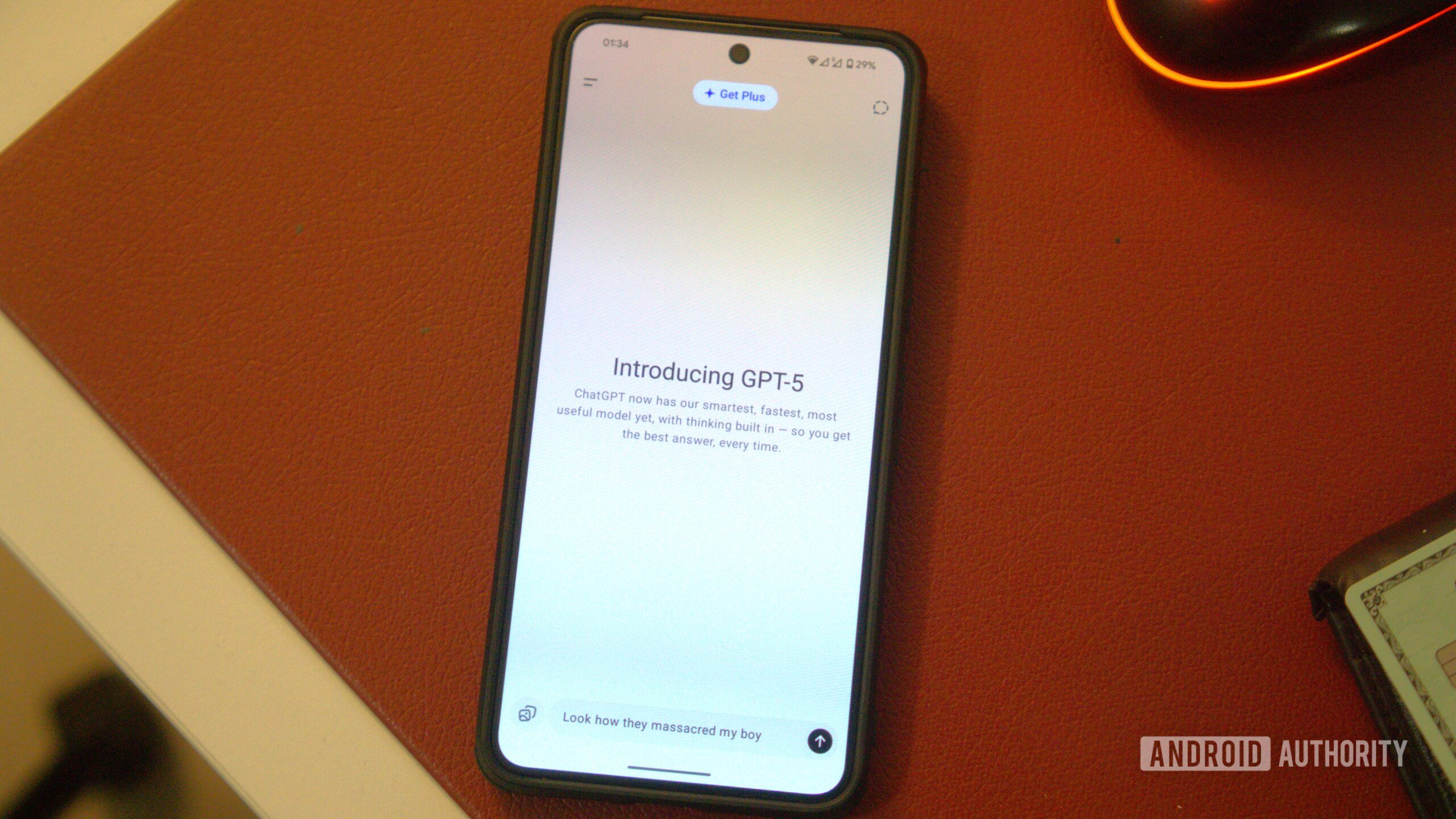Every Thursday, Delve Into AI will provide nuanced insights on how the continent’s AI trajectory is shaping up. In this column, we examine how AI influences culture, policy, businesses, and vice versa. Read to get smarter about the people, projects, and questions shaping Africa’s AI future. Let us know your thoughts on the column through this form.
Globally, AI startups have attracted over $100 billion in funding in the first half of 2025, nearly triple the $38.5 billion raised over the same period last year.
Africa’s share of that pie remains small, but is steadily expanding. Last week, I highlighted a string of notable deals from eight startups from the continent that have raised over $40 million this year.
In this week’s column, I spoke to several investors who recently invested in AI-focused startups to find out what kinds of AI-enabled solutions attract venture capital and their investment theses for a fast-evolving sector in a continent playing catch-up.
Infrastructure gaps as an opportunity
Across the board, investors and stakeholders cite a lack of infrastructure and datasets as roadblocks to AI innovation on the continent. “We are still missing critical infrastructure like electricity and data,” said Adjei Boateng, Chief Investment Officer at Accra-based investment firm, Black Star Group.
These constraints are not going to go away in the short term, yet they influence how investors choose to deploy their capital.
For Nairobi-based Enza Capital, however, infrastructure challenges are not deterrents.
“We are most excited about AI use cases that address Africa’s infrastructure gaps and create defensible value through local context,” said Mike Mompi, Managing Partner at Enza Capital. In February, the VC firm participated in a $3 million pre-series A round for Widebot AI, an Egyptian-founded AI startup focused on building enterprise-grade language solutions for corporations and government institutions in the MENA region.
Widebot plans to use the funding to build an Arabic-focused large language model called AQL Mind. Enza Capital believes companies that can create defensible datasets in contexts that global incumbents like OpenAI and Anthropic cannot easily replicate will bring more value.
“Going forward, we will continue to back companies that treat the many constraints in capital, infrastructure, talent, and data as design principles, not obstacles,” Mompi said.
Capria Ventures, a Global South-focused VC firm, takes a different approach. The firm chooses explicitly not to invest in companies focused on building AI models and tools. Instead, Capria prefers to invest in African startups with applied AI use cases, basically existing companies currently embedding AI into their pre-existing fintech, jobtech, healthtech, or logistics solutions. The firm currently has six startups in Africa under its portfolio, including Moniepoint, SeamlessHR, and Helium Health. They have a dedicated AI innovation team that works closely with their startups to identify and develop profitable AI use cases.
“Investing in traditional AI companies is more in the ballpark of large investors in the US, UK, and other developed markets,” Mobola Da-Silva, partner at Capria Ventures, explained. She worries about firms building what she describes as “AI just for AI’s sake”.
Atlantica Ventures, an African early-stage VC fund, takes a broader approach to AI startup investments, believing that opportunities for AI startups can come at different stages.
“We look at the full AI stack, from foundational models to infrastructure to customer-facing applications. We back founders building where competitive moats can be established,” said Aniko Szigetvari, founding partner at Atlantica Ventures.
In February 2023, the firm participated in a $2.5 million venture round to back Lelapa, a startup building language models for low-resource African languages like isiZulu, Hausa, Yoruba, Afrikaans, and more. In March 2025, they also backed Nosible’s $1 million pre-seed round. Nosible provides two main products: an API that produces real-time and historical data insights for businesses, and specialised AI agents designed to simplify tasks in global asset management. AI products primarily designed for developed markets and imported to the continent could fail to address these local conditions, making localisation a competitive advantage.
“We cannot simply transplant Silicon Valley AI models onto the continent,” Uwem Uwemakpan, head of investment at Launch Africa Ventures, said. “I’m not saying we should build our large language models; that’s going to be too expensive. But we should be asking: how are we adapting and training models on data unique to Africa, and turning those into solutions with global applications?”
In February, Launch Africa led a $1 million pre-seed round for ToumAI, a Moroccan AI startup focused on building speech recognition and conversational AI tools tailored for African businesses.
Is there a right business model?
For Mompi, there is a need to focus on balancing hype and noise in the AI space. Enza Capital is on the lookout for AI solutions built for specific industries with a high willingness to pay such as agriculture, health, and fintech, where local context and data are everything.
Szigetvari of Atlantica Ventures holds a similar view. “AI is more than just LLMs. We see enormous opportunity in applied AI for cold chain logistics, agriculture, cybersecurity, DevOps, and compliance. Models without defensible IP, or those over-reliant on generic AI without a market moat, are less compelling.”
Launch Africa’s Uwemakpan wants to see more AI startups focused on B2B (business-to-business) and B2B2C (business-to-business-to-consumer) solutions. Essentially, startups that sell to other companies, and those that sell to businesses, which then serve the end consumer.
“The reason for this is that there is a solid structure around revenues and you can usually predict this, especially for B2B startups, by signing long-term contracts to lock organisations and institutions into a plan,” he mentioned. “For B2B2C, there are lower customer acquisition costs.”
Alternative strategies for AI founders
Beyond the B2B and B2B2C model, VCs are on the lookout for two other kinds of approaches to AI innovation.
Those focused on combining AI with human expertise to deliver automation and reliability, and those focused on frugal innovation. More specifically, edge computing, small language models (SLMs), and infrastructure optimised for slow or unreliable internet on the continent.
Edge computing allows for data to be processed closer to where it is generated rather than sending it to distant cloud data centres in the US and Europe. This can help AI-powered tools on the continent in sectors like healthcare diagnostics run faster and more reliably, even in rural regions. SLMs are compact, more efficient versions of large language models. They do not need as much computational power and are better suited for use cases where data security is a priority. These tools are increasingly gaining popularity amongst corporations on the continent. For instance, UBA Bank, a tier-one commercial bank in Nigeria, has encouraged its in-house ‘Advanced Analytics and AI’ team since the start of 2025 to develop these SLM tools for application across different departments.
Chris Maranga, regional director for East and West Africa at impact investment firm Acumen, believes that AI startups prioritising operating in low-resource, high-constraint environments hold promise.
“We are watching for AI tools that integrate seamlessly with feature phones and low-bandwidth environments because that is where the largest untapped user base is,” Maranga told .
Big Tech is also watching
Big Tech is also on the lookout for AI-focused startups on the continent. Google recently committed $37 million to support Africa’s AI innovation, including its latest Google for Startups Accelerator Africa program. The cohort, announced in June, includes 15 AI-driven startups from seven countries, including Ghana, Rwanda, Nigeria, and South Africa.
“The decision to include AI-focused startups in this year’s cohort reflects a long-standing belief that Africa’s innovators are uniquely positioned to create solutions that can benefit both the continent and the wider world,” said Taiwo Kola-Ogunlade, Communications & Public Affairs Manager for Google West Africa.
The selected startups will receive the mentorship needed to develop robust business strategies and refine their products. They will also receive training on AI development, $350,000 in credits on Google Cloud, and the opportunity to meet investors and partners who will help them scale their impact. Google plans to provide these resources without equity requirements to the startups.
Uwemakpan believes investors should pay attention to growing interest from larger, global players when investing in AI startups on the continent. “How are we investing in companies that are strategically positioning themselves for acquisitions? When the global brands begin to look at Africa, who will they potentially acquire?”
In June, Meta concluded a call for early-stage African startups developing locally relevant AI applications that address key sectors, including education, healthcare, and agriculture. Winning teams will receive up to $25,000 in equity-free funding to support the deployment of their AI solutions. The program includes a six-week-long accelerator and six additional months of post-program support.
These investments, which may appear to be philanthropic, can serve as an important strategy for securing Africa’s AI market, which is expected to be worth over $16 billion by 2030.
Sceptics still remain
Some investors question whether these short-term-accelerator programs can have an impact on the continent’s evolving AI space.
“How many startups can you point to that went through accelerators that survived and succeeded?” asked David Lanre Messan, angel investor and founder of venture studio, FirstFounders.
The studio provides three-year-long programs that they believe can unlock the potential of early-stage entrepreneurs to build high-value AI-focused startups. Some startups currently under the FirstFounders portfolio include PocketLawyers, a Nigeria-based startup providing AI-powered productivity tools for lawyers and other clients with legal-related needs, and KorinAI, a generative AI music lab for Africans.
Looking ahead
For now, the AI landscape is still in its formative stages. Betting small on the continent’s evolving space may protect against risk. But, it could also shut the door on long-term gains to be made from investing in startups innovating despite existing infrastructure and resource gaps. Some investors view these gaps as limiting, while others still see an opportunity to better support impactful AI startups.
“VCs should also be thinking about the structures that can support these startups. They should begin to invest in partnership with venture studios,” Messan added.
Black Star Group’s Boateng wants to see more private, patient, long-term capital going into supporting context-specific AI solutions like language models for users on the continent. He welcomes efforts lobbying for Ghanaian pension funds to allocate 5% to Venture Capital and Private Equity in the country. “In a world that is changing so rapidly, not taking risks is the biggest risk itself.”
The regulatory landscape for AI startups on the continent is also still in its early stages, with only 16 countries so far releasing national strategies or policies to support AI innovation. This regulatory uncertainty could discourage investments in AI startups on the continent.
“We need regulatory sandboxes. People have ideas. People want to connect to specific databases,” Launch Africa’s Uwemakpan said. “It solves two things: governments can see what’s happening, while startups and founders can experiment.”
We would love to know what you think about this column and any other topics related to AI in Africa that you want us to explore! Fill out the form here.
Mark your calendars! Moonshot by is back in Lagos on October 15–16! Join Africa’s top founders, creatives & tech leaders for 2 days of keynotes, mixers & future-forward ideas. Early bird tickets now 20% off—don’t snooze! moonshot..com











